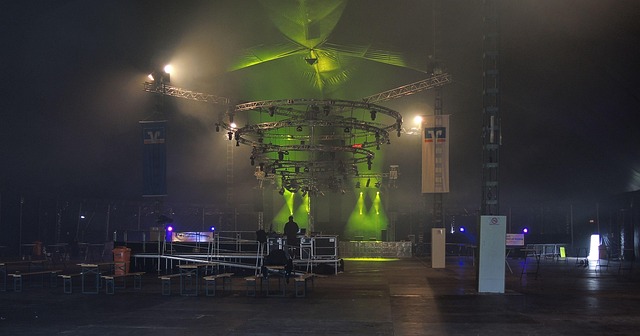Understanding your local business community is crucial for effective Event Planning for Local Businesses. By engaging with chamber of commerce meetings, networking events, and industry gatherings, planners gain insights into entrepreneurs' challenges and aspirations. This knowledge enables the creation of tailored workshops, seminars, and social events that foster collaboration, celebrate achievements, and address concerns. Successful event planning focuses on building connections, cultivating community, and driving collective growth. Identifying and understanding the target audience through market research ensures events meet specific needs, increasing attendance and engagement. Connecting with relevant business associations provides access to knowledge, resources, and partnerships, fostering collaboration and collective success.
Local businesses thrive on community engagement. Strategic planning for business events can foster meaningful connections, drive growth, and outpace competition. This comprehensive guide breaks down the essential components of successful local event planning. From understanding your audience and market to setting clear objectives, choosing the right format, and evaluating impact, discover how to create memorable gatherings that elevate your brand and boost community involvement.
- Understanding Your Local Business Community
- – Identifying target audience and their needs
- – Researching local business associations and networks
Understanding Your Local Business Community

Understanding your local business community is a crucial step in effective event planning. By immersing yourself in the fabric of your neighbourhood, you gain insights into the unique needs and dynamics of the businesses that make it up. This involves attending local chamber of commerce meetings, networking events, and industry-specific gatherings to connect with fellow entrepreneurs and understand their challenges and aspirations. Such interactions reveal emerging trends, identify potential partners or sponsors, and highlight the specific issues your community faces.
For event planners working on behalf of local businesses, this contextual knowledge is invaluable. It enables you to tailor initiatives like workshops, seminars, and social gatherings that address pressing concerns, celebrate achievements, or foster collaboration. Event planning for local businesses should be about more than just putting together a schedule; it’s about building connections, cultivating a sense of community, and creating opportunities that propel the collective growth and success of your area’s business ecosystem.
– Identifying target audience and their needs

When planning event strategies for local businesses, understanding the target audience is paramount. Event planners must identify and analyze the demographics, interests, and pain points of the intended attendees—whether they are potential clients, customers, investors, or community members. This involves delving into market research to unearth insights that will shape the event’s focus and format. For instance, a local tech startup might aim to attract young professionals and industry experts for an interactive workshop, while a small-scale retail store could host a family-friendly open house to engage local residents.
Tailoring the event to meet these specific needs ensures higher attendance and engagement. By addressing the target audience’s interests or resolving their common challenges, businesses can create memorable experiences that foster connections and drive positive outcomes. This strategic approach to event planning for local businesses not only enhances brand visibility but also establishes meaningful relationships with the community, contributing to long-term success and growth.
– Researching local business associations and networks

When planning event planning for local businesses, one of the first steps is researching and connecting with relevant business associations and networks in your area. These groups often serve as hubs for entrepreneurial activity, offering a wealth of knowledge, resources, and potential partnerships. By joining these communities, business owners gain access to like-minded individuals facing similar challenges and opportunities, fostering collaboration and collective growth.
Local business associations host regular events, workshops, and seminars tailored to specific industries or sectors, providing excellent learning and networking opportunities. These gatherings offer a strategic platform to exchange ideas, share best practices, and forge valuable connections that can contribute to the success and expansion of local businesses in event planning and beyond.
Strategic event planning is a powerful tool for local businesses to connect, engage, and grow within their community. By understanding the unique needs of their target audience and leveraging local business networks, companies can create meaningful events that foster relationships and drive success. Incorporating these techniques into Event Planning for Local Businesses ensures a vibrant and supportive business environment, ultimately contributing to the prosperity of everyone involved.













